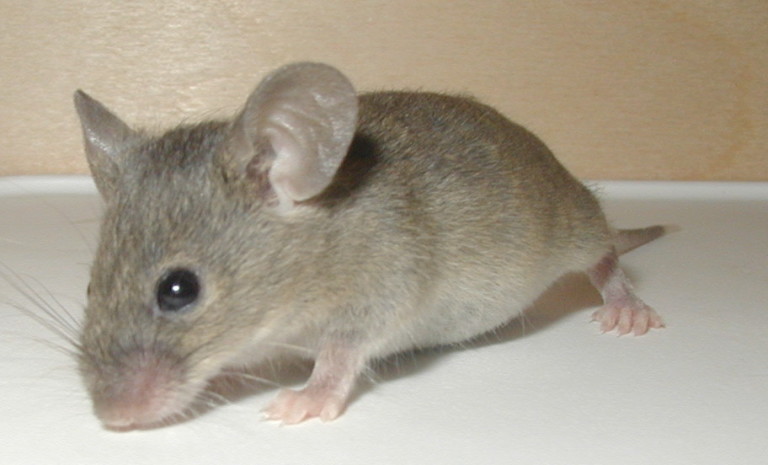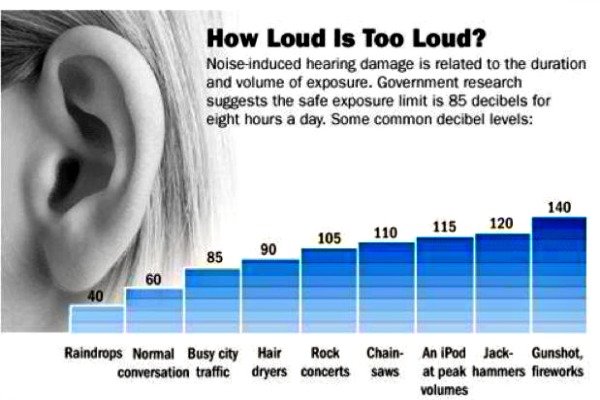Do it Yourself Pest Control: Non-toxic Home Made Strategies For Dealing With Pests

Overview:
You don’t have to call a pest exterminator to get rid of pests in your home. You can do everything yourself provided you are equipped with the right information. Pest control shouldn’t be an expensive affair either. There are simple home remedies you can use to get rid of harmful pests in your home and you don’t have to use expensive pesticides or harsh chemicals. There are many great natural pest control methods that are cheap, effective, safe and easy to use. Please enjoy this comprehensive guide to do it yourself pest control, heavily focused on natural, homemade remedies.
According to the latest statistics on pesticide use, North American households use approximately 136 million pounds of pesticides on their gardens and lawns. You don’t have to be part of this shocking statistic since this kind of pesticide usage exceeds the amount of pesticides used by North American farmers by three times. Furthermore, these pesticides eventually find their way in our food, water and surrounding i.e. wildlife. In fact, most wildlife pesticide poisoning cases in the U.S. are caused by domestic pesticide use. This is according to the United States Environmental Protection Agency. Do it yourself pest control guide is not only about killing these pests, but it is about prevention and knowing when to be worried and when not to be. We are not saying not to use pesticides, we are saying try natural solutions first, consider other methods second, and when pesticides are needed, use in moderation.
Furthermore, pesticides which kill harmful pests/insects tend to also kill beneficial insects causing serious imbalances. The importance of natural homemade remedies for pest control can’t therefore be overemphasized. Let’s begin by discovering some of the beneficial pests/insects in/or around our homes that we shouldn’t bother killing.
Beneficial insects
As mentioned above, not all insects are pests (destructive insects that attack crops, food, livestock etc and/or cause nuisance). Some insects are actually beneficial to you and your surrounding especially if you have a garden.
Insects such as Ichneumon Wasps, Chalcids and Brachonids get rid of caterpillars which can be very destructive if you have any kind of leafy vegetation in or around your home.
Ladybugs are also great examples of beneficial insects. Ladybugs eat mites, aphids, scale and whiteflies among other destructive insects. They should therefore be attracted instead of being killed. Ladybugs love tansy, yarrow among other flowers belonging to the daisy family. Like ladybugs, hover-flies also eat aphids. Praying Mantis are also beneficial insects especially if you have a garden because they eat almost all destructive garden pests.
Other great examples of beneficial insects include; nematodes. Nematodes feed on cutworms which are known to destroy seedlings. Nematodes also feed on root weevils and beetles. Like most beneficial insects, they are completely harmless to humans as well as pets. Bees are also beneficial insects because they help in pollination so their presence should be embraced.
Beneficial insects are attracted easily by planting specific flowering plants. You should create your own small Insectary to attract as well as harbor beneficial insects.
Ichneumon wasps, chalcids and Brachonids love celery, parsley, carrots and caraway. Ladybugs love tansy and yarrow. Hover flies also love yarrow among other flowers/plants like goldenrod and asters. Praying mantis and nematode eggs can be bought and harbored in a garden. Bees love almost all kinds of flowers.
Since you now know you shouldn’t be planning to kill any insect you come across, it’s time to identify common pests you should be worried about.
Identifying common pests
It’s important to note at this point that pests can also be animals like rodents (rats and mice). The term pest stands for all destructive insects or animals which attack food, livestock etc. and/or cause a nuisance. As a result, pests include but aren’t limited to cockroaches, mosquitoes, ants, rats, mosquitoes etc.
It’s wise to take time and learn as much information as possible about the physical characteristics and life cycles of the pests that have invaded your home especially if they are not common. There are many resources you can turn to. For instance, the United States Department of Agriculture has guides that can help you identify and control pests as well as get access to all the pest management centers in the U.S.
Do it yourself pest control: Natural pest control
To be able to get rid of pests in your house and surrounding safely and effectively on your own, you need to consider some factors. These include;
a. Natural predators capable of controlling or killing the pest/s in question
As discussed above, not all insects are pests. Some insects are actually beneficial so before you seek other natural pest control methods, it’s important to ask yourself if there are natural predators capable of controlling the pests that are disturbing you. This consideration is very important especially if you are dealing with garden pests since most of these pests have natural predators as seen above. For most household pests however, you might need to consider another factor i.e. prevention. Mosquitoes for instance have natural predators such as bats, fish, spiders, birds, frogs and dragon flies that may feed on mosquitoes in a household setting but introduce other challenges. Furthermore, these predators may not get rid of mosquitoes effectively. This leads us to the next, most important factor to consider
b. Preventative methods
If there is no ideal natural predator for the pests in question, you can proceed and consider preventative pest control methods. In fact, one of the best ways of controlling household pests and garden pests is to not invite them in the first place. To do this effectively, you need to employ preventative methods, not just do it yourself pest control actions.
Every pest has a suitable habitat. For instance, mosquitoes love tall grass/vegetation and stagnant water therefore one of the best preventative measures to take when you want to get rid of mosquitoes is to get rid of tall grass, shrubs and stagnant water sources i.e. swamps near your house. Pests such as rats, mice, cockroaches love filth/dirt. Keeping your home and surroundings spotlessly clean is therefore one of the best ways of controlling such pets. Most, if not all kitchen bugs are attracted by food and water so keeping your kitchen spotlessly clean, taking out garbage regularly and storing food properly are some great preventative measures for keeping such insects away.
Garden pests can be controlled by creating a perfect habitat for beneficial insects to thrive as well as keeping foliage dry, getting rid of infected plants, crop rotation, clearing weeds and debris which are great breeding grounds for insects etc.
If these methods fail to work effectively for you, consider the do it yourself pest control methods discussed below.
Do it yourself pest control: Controlling the most common home pests naturally and safely (using non toxic methods)
Mosquitoes
You can control mosquitoes yourself at home in many ways without using toxins such as pesticides. You can;
· Block them: First and foremost, you can simply block mosquito entryways to your home i.e. makes sure you close your doors and windows when they are most likely to enter which is early in the morning or in the evening just before dark.
· Drain stagnant water: You can also control and eventually get rid of mosquitoes by removing any stagnant water sources around your home from swamps and wading pools to birdbaths, pet water bowls and old tires. It’s also important to ensure you keep your gutters clean to ensure they don’t hold any water.
· Use garlic as a repellent: Garlic is one of the most effective mosquito repellents. You can mix garlic juice and water in the ratio of 1:5 and then use the mixture as a repellent. For instance, you can soak cotton wool into the mixture and place at different sections of your home i.e. patios and windows to repel mosquitoes.
· Neem oil: This is another great natural mosquito repellent. Neem oil is a vegetable oil extracted from the Neem Tree which is native to India. The seeds and leaves contain sallanin which has mosquito repellent properties. The oil is readily available in chemists and convenient stores. Apply a few drops of the oil on your hands and legs as well as mosquito prone areas to keep mosquitoes at bay.
· Plant mosquito repellent plants: Mosquitoes hate rosemary, citronella grass, lemon balm and marigolds. You can add some of these plants among many others i.e. catnips in your garden or flower pot to keep mosquitoes at bay.
· Cover yourself up: This should go without saying. To avoid being bitten by mosquitoes, use a mosquito net at night. You should also wear long sleeved pants and shirts, use door and window screens to protect yourself and your family.
· Use candles made using essential oils: You can make your own candles using a mixture of melted wax and essential oils. The essential oils i.e. lavender, clove, eucalyptus, cinnamon and citronella oils should be at least 25% of the mixture. Essential oils are great natural mosquito repellents.
· Eat garlic and drink organic apple cider vinegar: You can transform yourself into a mosquito repellent by eating garlic and drinking one tablespoon of organic apple cider vinegar daily. Vitamin B1 is also an effective insect repellent. Mosquitoes can stand these ingredients in your blood so they’ll keep off.

Cockroaches
Although getting rid of cockroaches naturally can be a seemingly slow process, its way better than using harmful insecticides which pose serious health risks to you and your family. Some of the top ways of getting rid of cockroaches in an safe and environmental friendly way include;
· Keep your house and surrounding sparkling clean: Let’s face it! Cockroaches love dirt. Actually, most household pests thrive in such conditions so if you have cockroach problems, your house need a thorough cleanup. Cockroaches feed on food residue which is found mainly in the kitchen and garbage can. Food residue can also be found in any room in your house where you eat food from i.e. from your dining room to living room and bedrooms. Cockroaches also love water and filth so they also thrive in dirty bathrooms. Cleaning your house thoroughly regularly is a great way to get rid of cockroaches. You should take trash out regularly and make sure you clean all tables and dishes thoroughly after use.
· Seal up all cockroach pathways: Cockroaches usually pass between counter tops and baseboards. They are also capable of crawling through very tiny spaces. It’s easy to identify cockroach pathways. Just visit your kitchen at night and observe where cockroaches run to when you switch on the lights. Although it can be a tedious process trying to seal up all cockroach pathways, it’s worth the effort especially if you live in an apartment block and have neighbors who don’t maintain high standards of cleanliness like you. You can use sealants such as caulk.
· Use natural cockroach bait: You can also use natural cockroach bait to deal with cockroaches naturally and safely. Cockroaches love sugar. Boric acid kills them (but is safe for humans and pets) so you prepare sugar and boric acid bait. Place the bait in cockroach prone areas such as under the stove, fridge, sink as well as along cabinets and pantries.
· Natural cockroach spray: You can also make your own natural cockroach spray using the same ingredients. Spray made using soap and water will also come in handy. Spraying soap and water on cockroaches suffocates them with time since it seals their spiracles. This method is great when you know exactly where cockroaches hide in your home otherwise it can be tedious trying to spray each and every cockroach you see in your home.
Ants
Ants are also common household pests that can cause a lot of serious problem i.e. structural damage. Ants can also destroy food reserves and attack humans and pets when threatened. They must therefore be eliminated from homes. Below are some of the best do it yourself pest control tips to consider when you want to get rid of ants in your home.
· Keep your home clean: Ants are attracted to food residue. As a result, it’s important to keep your home especially kitchen, sparkling clean. Just good advice for do it yourself pest control.
· Block pathways: Ants have distinct pathways which can be found easily because they travel in straight lines. To block their pathway/s, trace their entry point/s and block them using a sealant or natural repellents like, coffee grounds, citrus oil, cinnamon and cayenne pepper.
· Use cucumber and/or mint: Ants also hate cucumber and mint so you can use such repellents on pathways in your kitchen to keep ants away.
· Use homemade ant bait: Like cockroaches, you can kill ants with boric acid and sugar bait. Ants can also be killed using cornmeal bait. They love eating cornmeal but can’t digest it so it kills them. The bait is however safe for pets and humans so you don’t have to worry.
· Use diatomaceous earth: DE (diatomaceous earth) is another deadly ant poison which is harmless to humans and pets. DE is made using marine phytoplankton remains. DE dehydrates and kills ants. You should sprinkle this talc-like powered in ant prone areas in your home to get rid of ants safely and effectively.
Flies
House flies are deadly house pests because they are among the main carriers and transmitters of diseases like dysentery, cholera, typhoid and tuberculosis. Although there are many types of flies, most can be repelled or killed using the same natural methods. Below are the most environmental friendly, safe and effective do it yourself pest control methods for getting rid of flies.
· Use natural repellents: Flies hate sweet basic and eucalyptus oil. You can plant sweet basil in your home or sprinkle some eucalyptus oil around your doors and windows to keep flies away. Other great natural repellents for controlling flies include mint, bay leaf, eucalyptus and clove.
· Create your own flytrap: Use corn syrup, sugar and water to create a sugar mixture and dip kraft paper into the mixture. Allow the paper to soak up the mixture. Poke a hole and hang the paper using a string. Flytraps work by attracting flies and trapping them. When flies stick on the traps, they can’t free themselves.
· Block pathways: You can also keep flies away by blocking all their pathways especially windows. Flies love entering homes through the windows. Installing a window screen is a great way to keep flies and other insects from getting into your home via open windows.
Spiders
Spiders are among the deadliest household pests because most of them contain venom. Although household spider species rarely pose serious danger to humans and they usually feed on harmful pests/insects such as flies, very few people want spiders in their homes. There are more than 45,700 spider species in the world. North America is home to about 4,000 species most of which are wild. If your home has been invaded by spiders and you want to get rid of them without using harsh chemicals/pesticides, here’s what you need to do.
· Use natural repellents: Spiders hate peppermint, vinegar, coconut oil and citrus essential oils. You can use these natural repellents in spider prone areas i.e. ceilings, cobwebs, around windows and doors to get rid of spiders.
· Get rid of clutter: Spiders love hiding in dark cluttered spaces so it’s important to get rid of all clutter in and around your home. Keep your home clean and neat and you won’t have to worry about spiders especially if you are using natural repellents as well.
· Seal common entryways/pathways: Spiders enter homes through gaps in windows, ceilings, beneath doorways etc. It is therefore important to seal all this spaces and spray some repellents to discourage entry via tiny unsealable spaces.
Bugs
Bug is a term used to refer to most if not all types of small crawling insects like mites. An all purpose bug spray is great when you want to kill a variety of small crawling insects in your home. You can create an all purpose bug spray using ingredients like essential oils and apple cider vinegar or witch hazel. Most insects hate essential oils which is why they are used in most repellents. You can make a homemade bug repellent by mixing 45 drops of peppermint essential oil with 15 drops of wild orange or lemon essential oil and 8 Oz apple cider vinegar or witch hazel. Mix the ingredients and pour into a spray bottle for your homemade do it yourself pest control solution for bugs. Store in a cool and dry place. The spray can last for a month. It’s effective, safe for you, your family and the environment, a good do it yourself pest control.
Kevala Organic Raw Apple Cider Vinegar, 8 Ounce (click to see product on Amazon)
Rodents
Some of the most popular household rodents include mice, rats and moles. Rodents can feed on just about anything although they love seeds and leftovers. They love invading garbage cans among other sources of filthy leftovers.
· Keep your home clean: This is one of the best ways of making sure you keep your home free of rodents. Clean your kitchen thoroughly and empty your garbage often to eliminate all popular food sources for rodents. Also, seal all food containers overnight and put trash cans far away from your home if you can or seal them as well.
· Use natural repellents: Rodents hate peppermint. You can sprinkle peppermint over popular rodent habitats i.e. near garbage cans to keep them off.
· Use rodent traps and barriers: You can use the typical mice trap to kill rodents naturally instead of poisoning them with harsh chemicals. Typical mice traps are readily available and effective. They are old-fashioned but still popular to date. You can also use rodent barriers to keep them off food stores i.e. granaries where you store your grains. Typical rodent barriers block entryways making it impossible for rodents to get to stored food. This method is effective for households with outdoor food stores. You can build a raised store and then put rodent barriers on the support pillars to prevent rodents from gaining access to stored food.
Summary: Do It Yourself Pest Control
The above information summaries the safest, most environmental friendly and effective do it yourself pest control strategies to use on the most common pests found in and around households. From the above information, it is clear that you don’t have to use a lot of money or use harsh chemicals/pesticides to control common household pests. You can use natural insect repellents and do the necessary modifications to your home keep pests away forever. Ideally, if you keep your home sparkling clean and organized at all times as well as use natural repellents that keep of common harmful pests, you shouldn’t have a problem getting rid of all common pests in your home for good.
We hope you enjoyed this article on do it yourself pest control.
Other articles to read on pest control: Dealing with Cockroaches: Solution is Using Roach Killer





